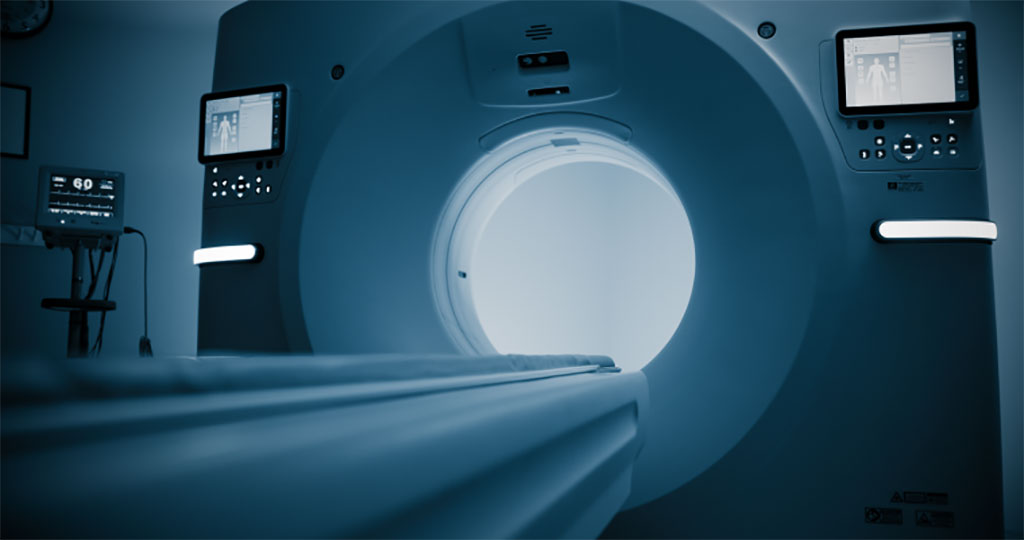New CT Scanner Uses AI to Automate Workflow
By MedImaging International staff writers
Posted on 27 Oct 2021
A collection of artificial intelligence (AI) technologies increase operational efficiency by simplifying time-consuming tasks.Posted on 27 Oct 2021
The new GE Healthcare (GE; Chicago, IL, USA) Revolution Ascend offers a 75 cm wide-gantry, 40 mm detector coverage, and lower table position, increasing patient area inside the bore by 22%. The increased bore size accommodates high body mass index (BMI) patients, as well as trauma cases that would be too delicate to maneuver in a smaller gantry. Revolution Ascend also comes with GE Healthcare’s Effortless Workflow, a suite of AI solutions that personalize scans accurately and automatically for each patient, while requiring significantly less effort from the CT technologist.

Image: The all new Revolution Ascend CT scanner (Photo courtesy of GE Healthcare)
It starts with the technologist using the system’s attached bar code reader to automatically pull up the patient’s information and suggest relevant protocols. With one click, the CT technologist can then initiate Auto Positioning, which uses real-time depth-sensing technology to generate a 3D model of the patient’s body, and a deep learning algorithm to determine correct table elevation and cradle movements to align the center of the scan range with the isocenter of the bore. Intelligent tools embedded in the Clarity Operator Environment provide optimal scan range settings, dose, and image quality.
In all, Effortless Workflow’s AI-based features streamline the entire CT process by automatically positioning patients with 94% auto centering accuracy; suggesting protocols with 90% accuracy; automating and expediting workflows with 66% reduction in clicks; saving 56% of time for scan settings and 21% for the entire exam; reducing up to 91% image noise at the same dose; and doubling spatial resolution. Revolution Ascend also uses a dedicated deep neural network to generate TrueFidelity CT Images to help improve reading confidence in a wide range of clinical applications.
“We designed Revolution Ascend with accessibility in mind. Not only does the system’s hardware help accommodate more patients with various physical limitations, but its cutting-edge AI also helps expedite exams so healthcare system schedules can accommodate additional patient scans,” said Jean-Luc Procaccini, President and CEO of molecular imaging & CT at GE Healthcare. “Altogether, Revolution Ascend with Effortless Workflow helps empower clinicians to reach the right diagnosis as efficiently and precisely as possible for more patients.”
“The most time-consuming part of the CT experience isn’t the scan itself, but the steps that fall outside the scan,” said Timothy Szczykutowicz, PhD, author of The CT Handbook: Optimizing Protocols for Today's Feature-Rich Scanners. “The scan itself only takes a few minutes and the remainder of the time is dedicated to patient prep, including positioning the patient and identifying the correct protocols and settings, plus image reconstruction and report time. Historically, these have been manual processes, putting them at risk of human error; AI offers new opportunities to automate workflows and expedite exams with the same or better results.”
Related Links:
GE Healthcare














